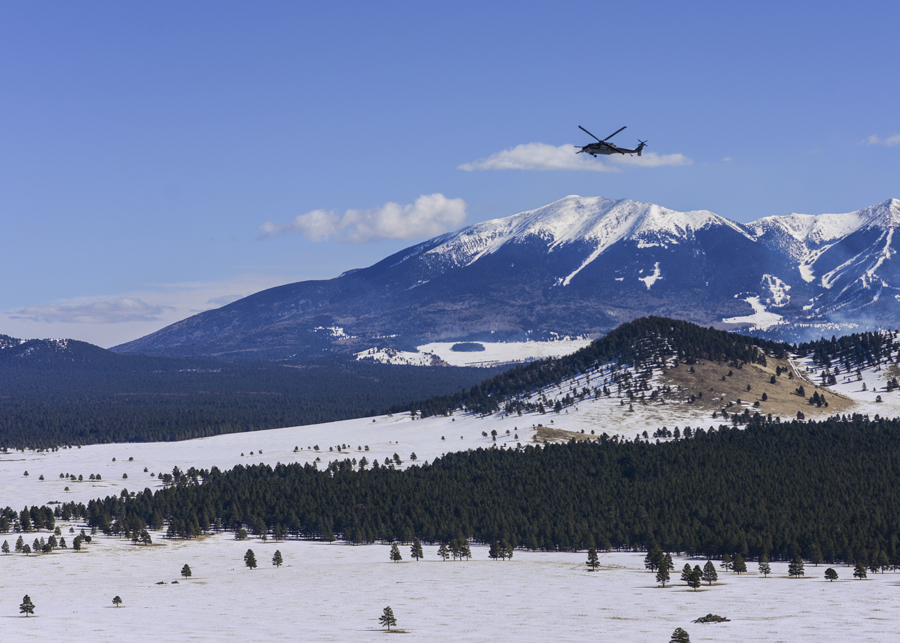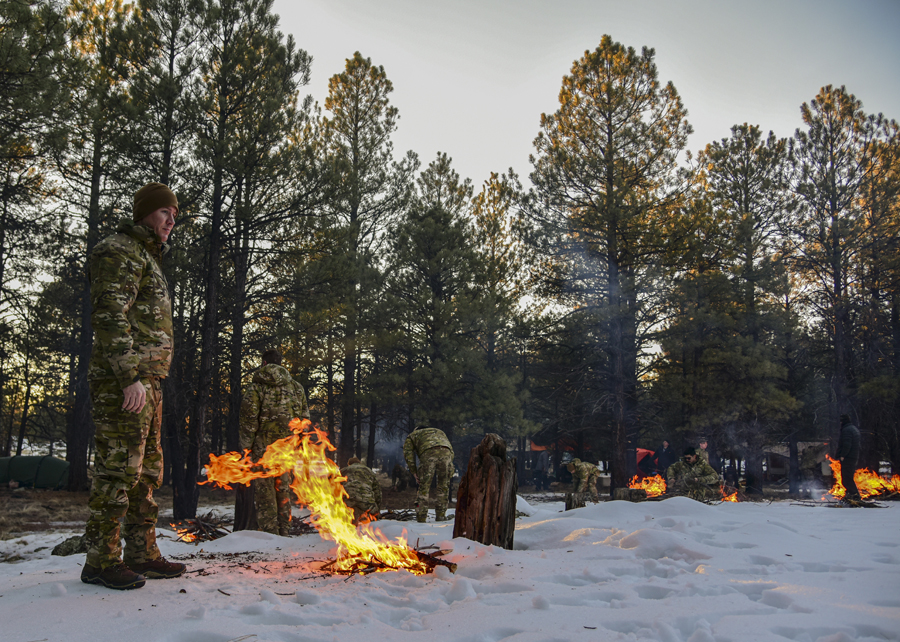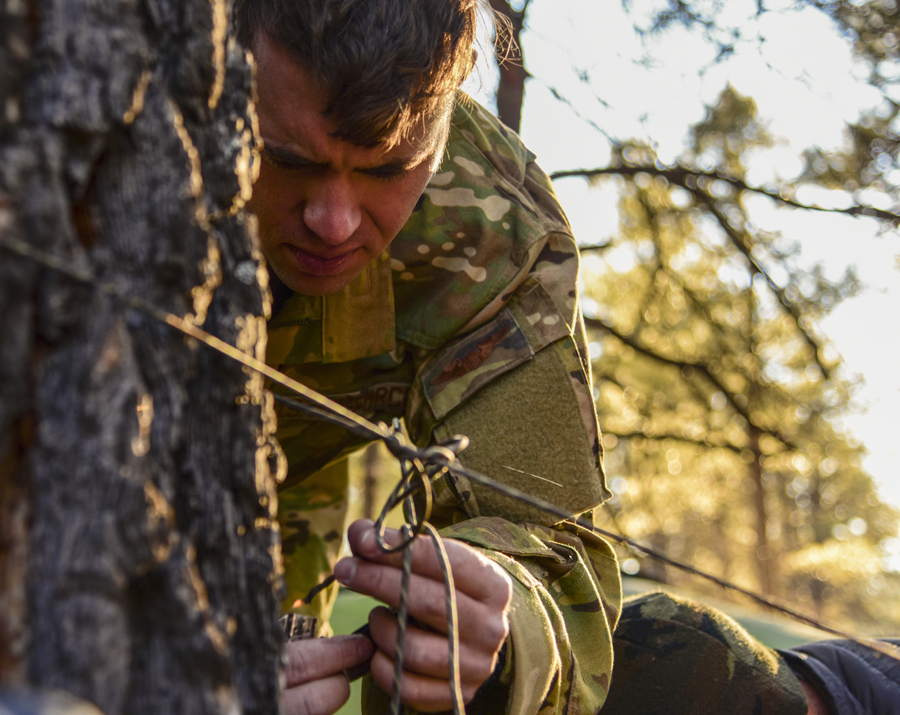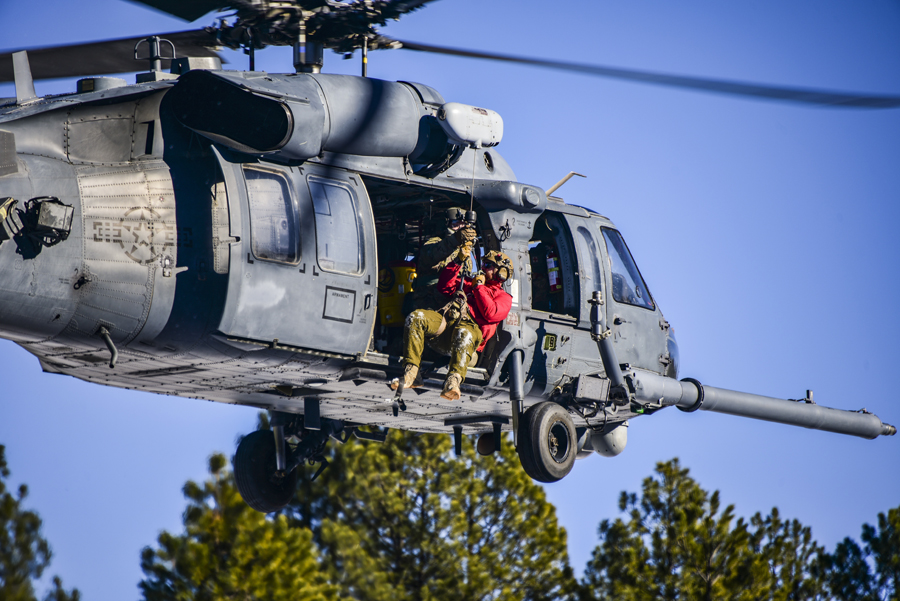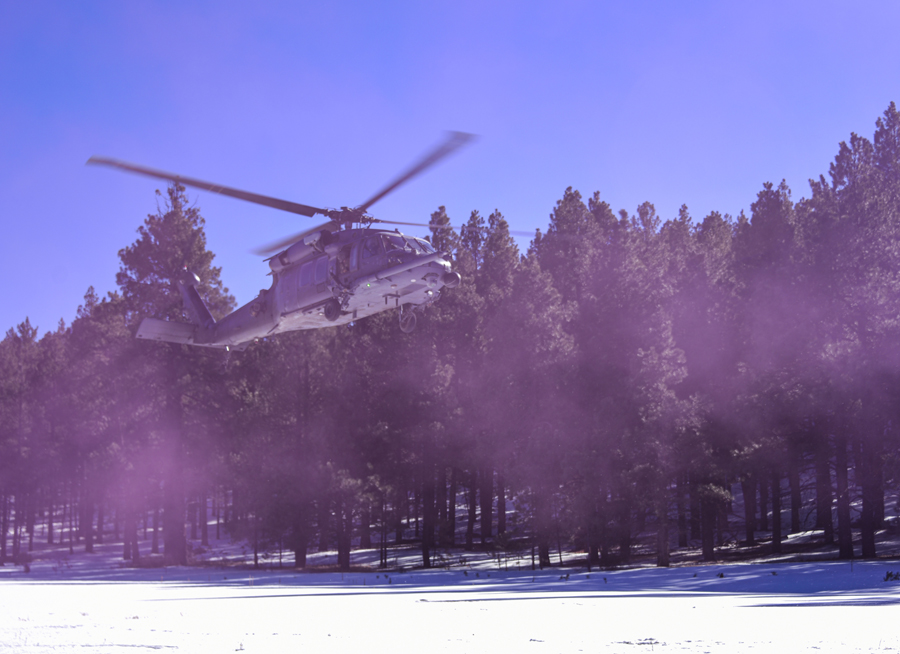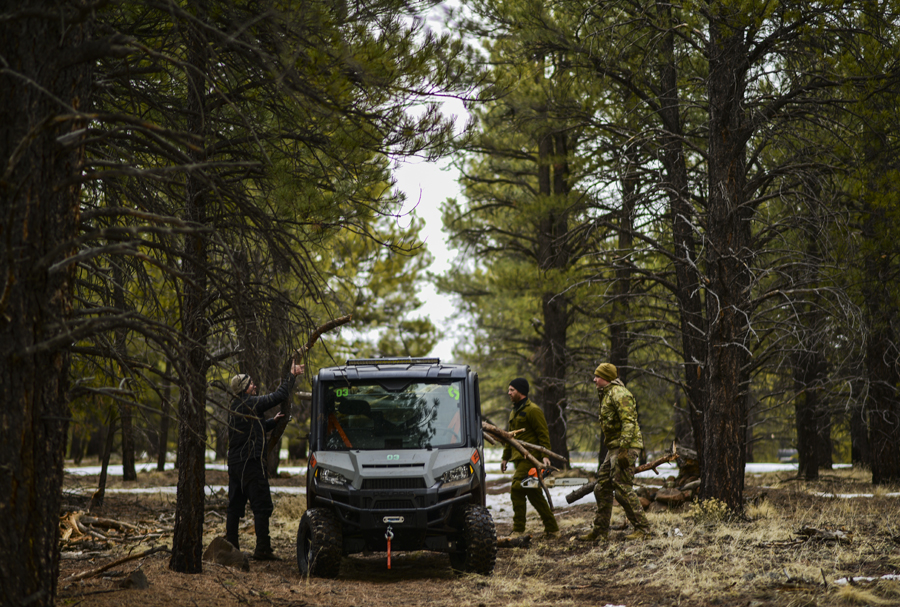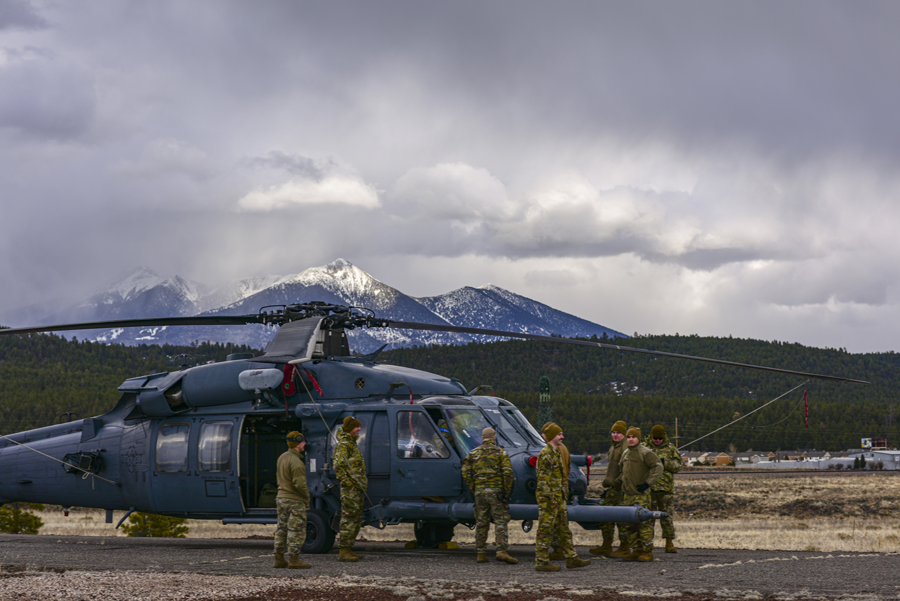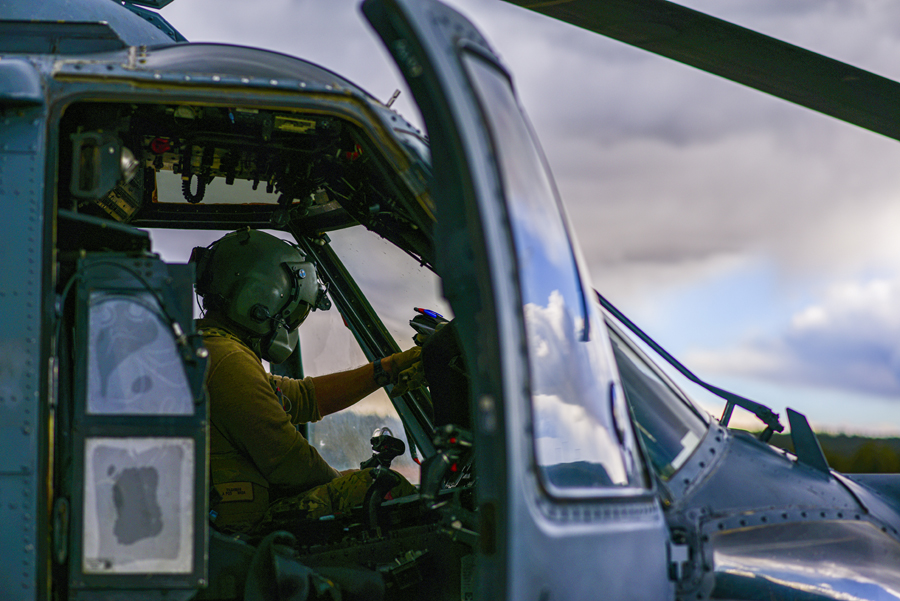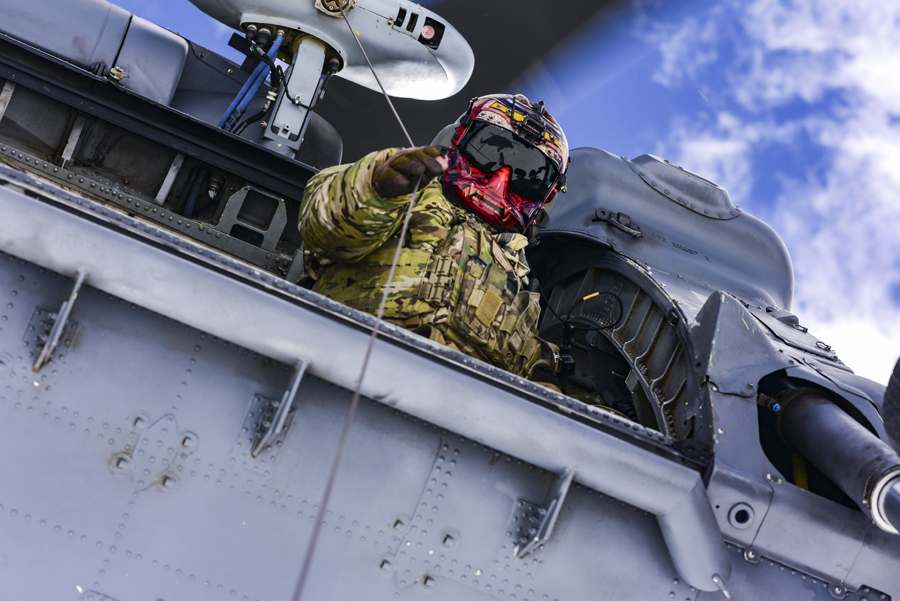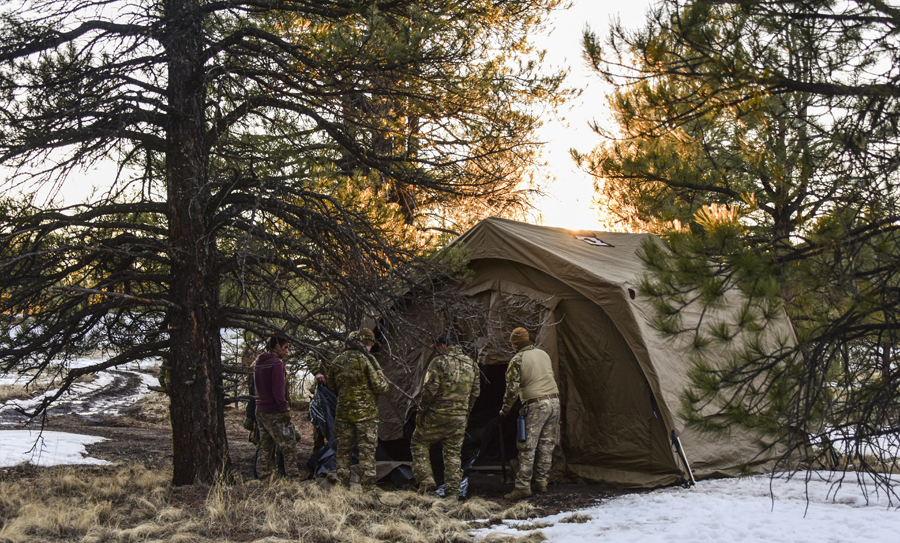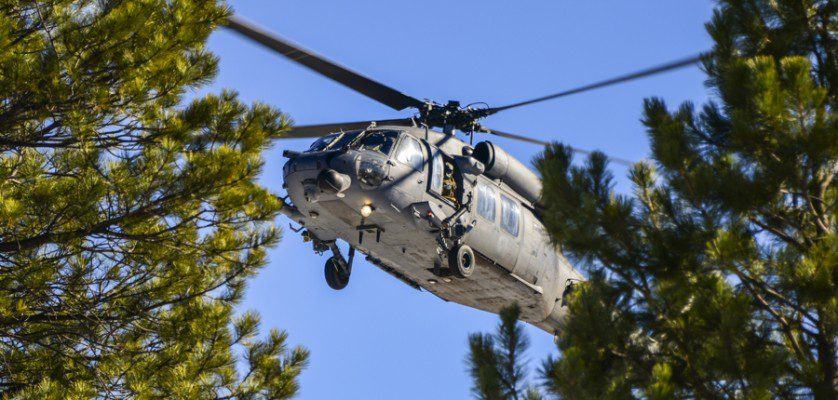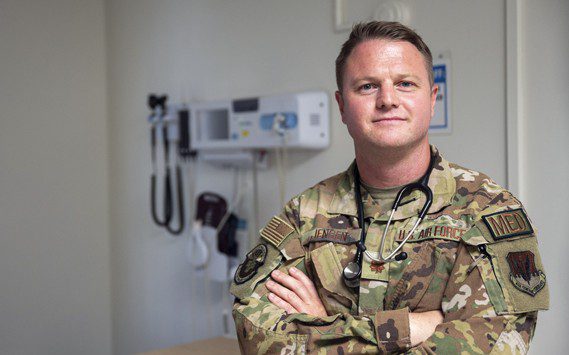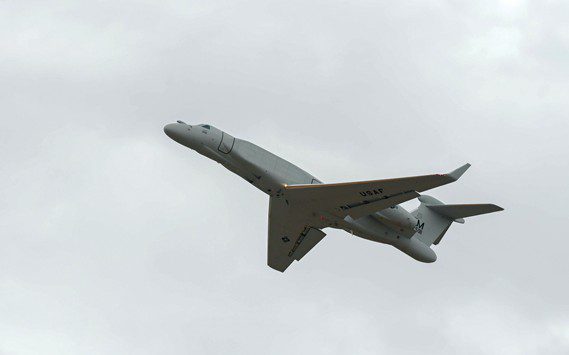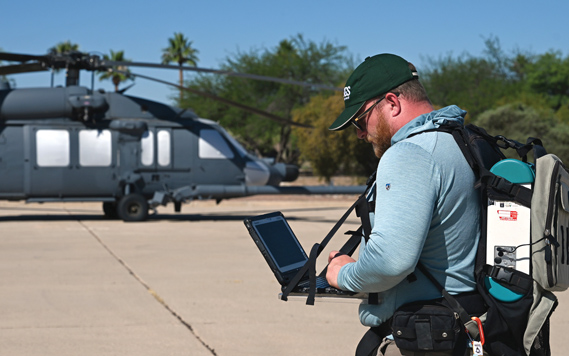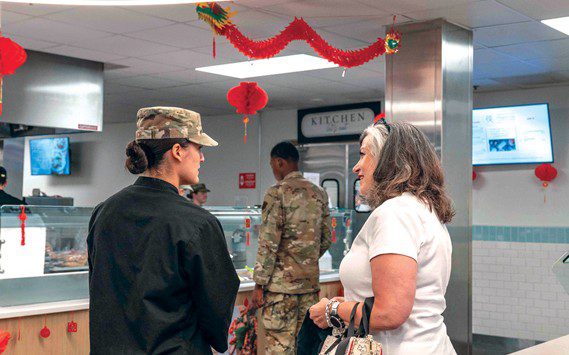U.S. Air Force members from the 563rd Rescue Group forward deployed to Camp Navajo, Ariz., from Jan. 24-28, 2022, to complete cold weather survival training while implementing agile combat employment by operating and flying out of a contingency location at a higher elevation of about 7,100 feet.
Various HH-60G Pave Hawk aircrews from the 55th Rescue Squadron flew from Davis-Monthan AFB to Camp Navajo to perform simulated civilian and combat search and rescues. Afterwards, they would set up camp for the night in a harsh environmental setting and executed Survival, Evasion, Resistance, and Escape training led by a SERE specialist from the 48th Rescue Squadron.
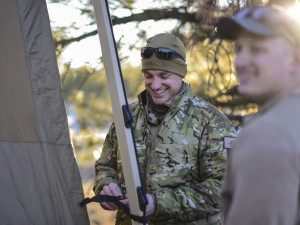
“Primarily, we’re here to fly the HH-60 in a mountainous, cold weather environment,” said Capt. Forrest Schaffer, 55th RQS HH-60 pilot, and exercise coordinator. “We’re also living and operating out of a contingency location containing a more difficult survival element in our austere environment that we don’t normally train in.”
The purpose of this CSAR and SERE training operation was to further equip 55th RQS personnel with skillsets to survive in any type of situation they might encounter while downrange.
“We are training in an arctic or subarctic domain in preparation for potential peer-on-peer warfare,” said Staff Sgt. Joseph Collett, 48th RQS SERE Specialist. “It gives the crews experience to bed down their aircraft and survive for 24 plus hours before they would need to move on to another forward operating location.”
Not only did this training refresh the aircrews’ SERE training, but it also gave the pilots an opportunity to perform more advanced maneuvers and rescues at higher-than-normal elevations.
“One of the unique things about flying helicopters here is that we can land pretty much anywhere,” said Schaffer. “In conjunction with the ACE construct, we’re able to set up a campsite we can operate out of essentially wherever we can land and employ that combat capability to be able to operate our rescue mission.”
This training further prepared the 55th RQS members to adapt and overcome obstacles, despite physical elements that might blockade them from executing their rescue missions in combat.
